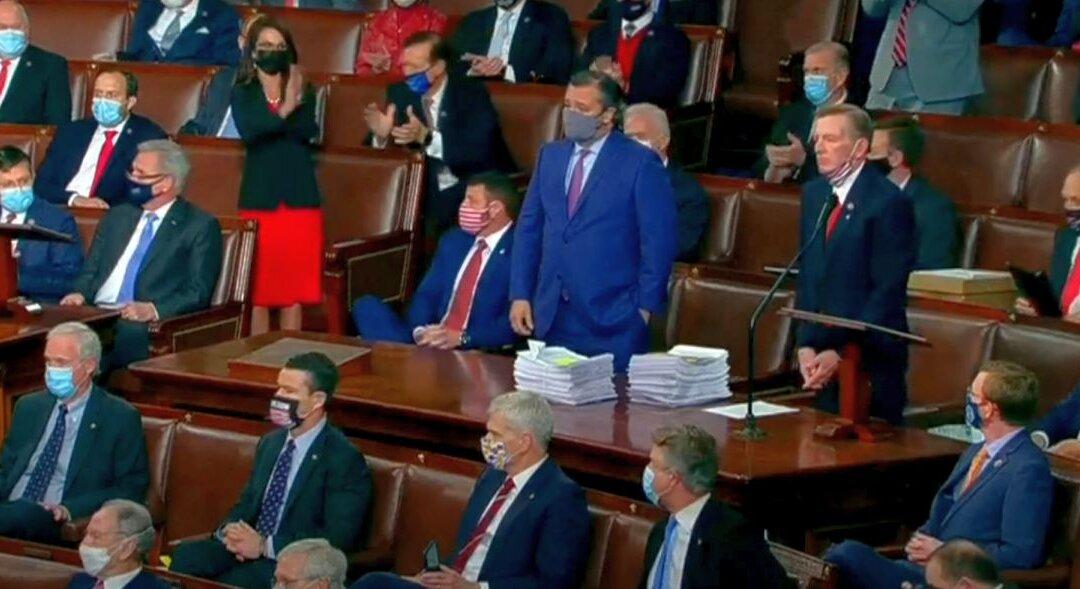More than 60 Republican House representatives led by Rep. Paul Gosar (R-Ariz.) and one senator objected to Arizona’s 11 electoral votes during the Joint Session of Congress on Wednesday.
Their objection “complies with the law,” said Vice President Mike Pence, the president of the Senate during the Joint Session of Congress.





